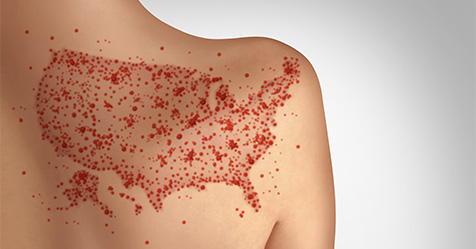WHO Prepares for Future Pandemics
Historic pandemic agreement recommends a shared response to shared threats
After more than three years of intensive negotiations, World Health Organization (WHO) member states took a major step forward on Wednesday in efforts to make the world safer from pandemics by forging a draft agreement for consideration at the upcoming World Health Assembly in May. The proposal aims to strengthen global collaboration on prevention, preparedness, and response to future pandemic threats.
In December 2021, at the height of the COVID-19 pandemic, WHO members established the Intergovernmental Negotiating Body (INB) to draft and negotiate a convention, agreement, or other international instrument under the WHO Constitution to strengthen pandemic prevention, preparedness, and response.
Following 13 formal rounds of meetings, nine of which were extended, and many informal and intersessional negotiations on various aspects of the draft agreement, the INB yesterday finalized a proposal for the WHO Pandemic Agreement. The outcome of the INB’s work will now be presented to the 78th World Health Assembly on May 19 for its approval.
“The nations of the world made history in Geneva today,” said Dr. Tedros Adhanom Ghebreyesus, WHO director-general. “In reaching consensus on the Pandemic Agreement, not only did they put in place a generational accord to make the world safer, they have also demonstrated that multilateralism is alive and well, and that in our divided world, nations can still work together to find common ground and a shared response to shared threats. I thank WHO’s member states, and their negotiating teams, for their foresight, commitment, and tireless work. We look forward to the World Health Assembly’s consideration of the agreement and—we hope—its adoption.”
Proposals within the text developed by the INB include establishing a pathogen access and benefit sharing system; taking concrete measures on pandemic prevention, including through a One Health approach; building geographically diverse research and development capacities; facilitating the transfer of technology and related knowledge, skills and expertise for the production of pandemic-related health products; mobilizing a skilled, trained, and multidisciplinary national and global health emergency workforce; setting up a coordinating financial mechanism; taking concrete measures to strengthen preparedness, readiness, and health system functions and resilience; and establishing a global supply chain and logistics network.
The proposal affirms the sovereignty of countries to address public health matters within their borders, and provides that nothing in the draft agreement shall be interpreted as providing WHO any authority to direct, order, alter, or prescribe national laws or policies, or mandate states to take specific actions, such as ban or accept travelers, impose vaccination mandates or therapeutic or diagnostic measures, or implement lockdowns.


